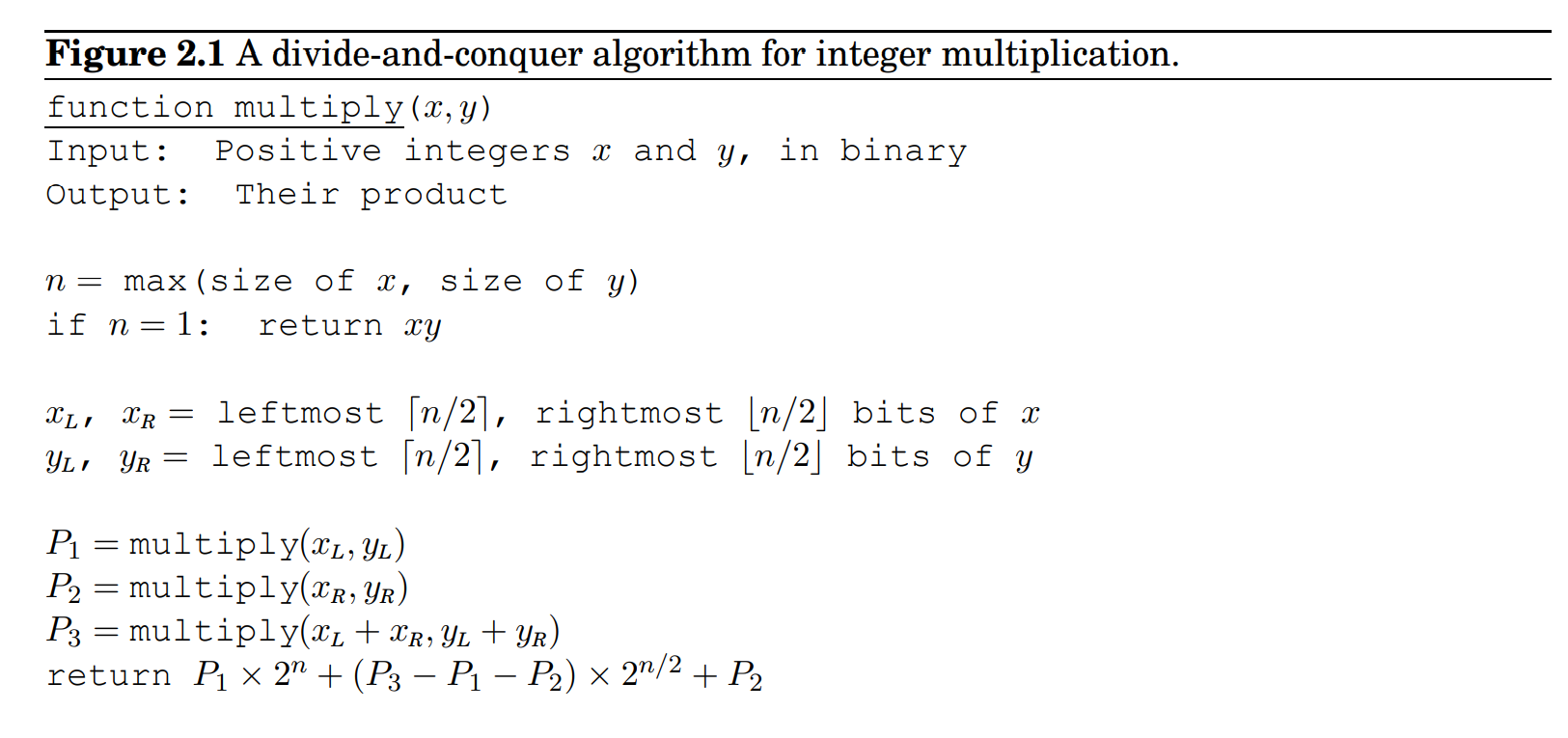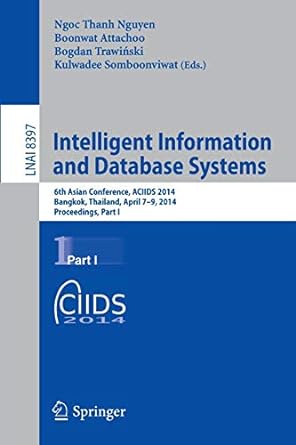Question
Implement the long-hand multiplication algorithm for two n-bit unsigned numbers, with no recursion, no divide-and-conquer, etc. note: you need to multiply bitstrings not integers, return
Implement the long-hand multiplication algorithm for two n-bit unsigned numbers, with no recursion, no divide-and-conquer, etc. note: you need to multiply bitstrings not integers, return value of the program should be a bitstring. E.g., x = 11110000, y = 10111100, then if z = x y, your program should return z = 1011000001000000.
Now implement the divide-and-conquer recursive methods, using arity (branching factor) of 3 (ref. textbook, pg. 47, Fig 2.1). dont assume the number of bits is always even. You will need to take care of this carefully in implementing the algorithm outlined in the book.
implement the na ve divide&conquer recursive method without the Gaussian trick. the arity of your recursion tree will be 4. can use the same program written for the previous problem, instead of 3, there will be 4 multiplications. verify that the running time is the same as the na ve algorithm O(n2).
IN C++ PROGRAMMING PLEASE

Step by Step Solution
There are 3 Steps involved in it
Step: 1

Get Instant Access to Expert-Tailored Solutions
See step-by-step solutions with expert insights and AI powered tools for academic success
Step: 2

Step: 3

Ace Your Homework with AI
Get the answers you need in no time with our AI-driven, step-by-step assistance
Get Started


